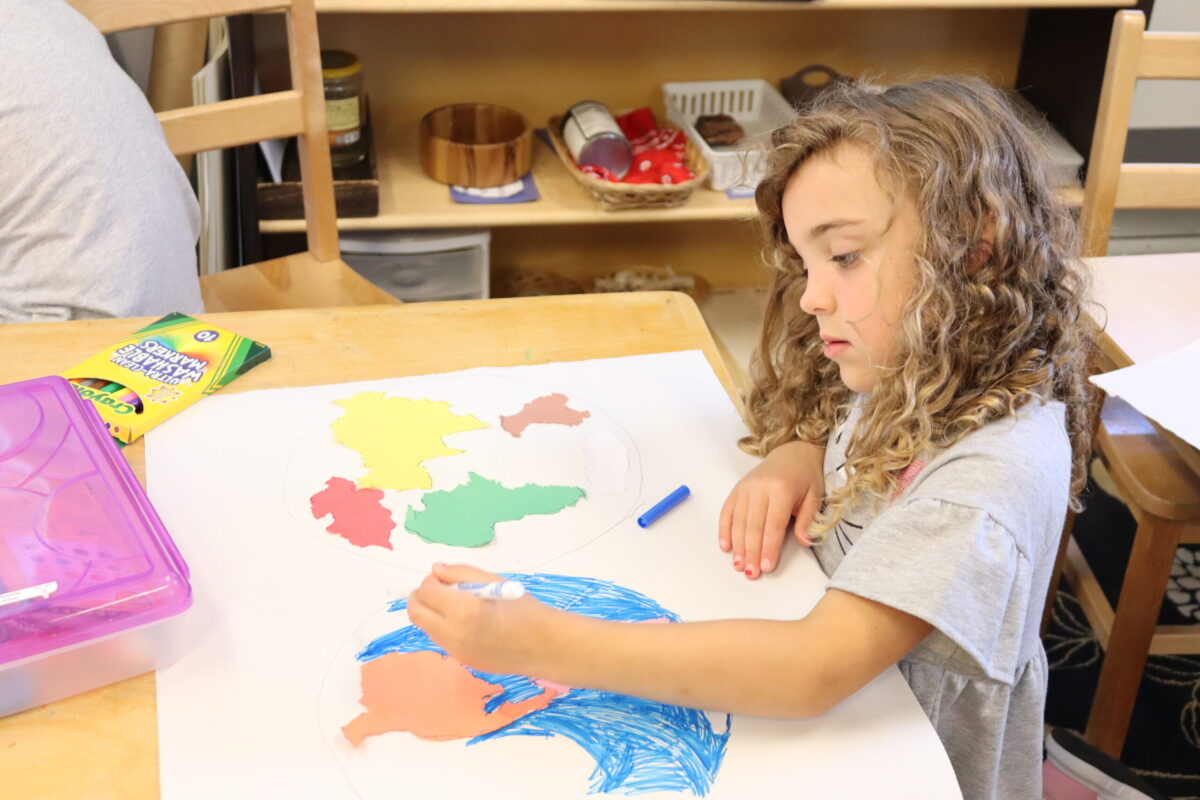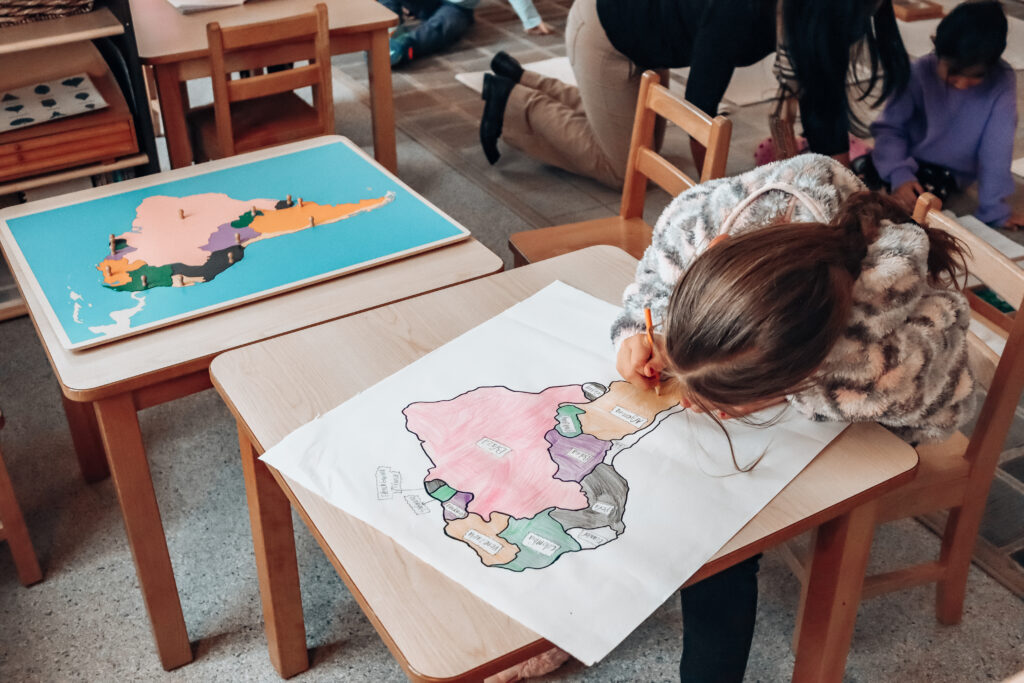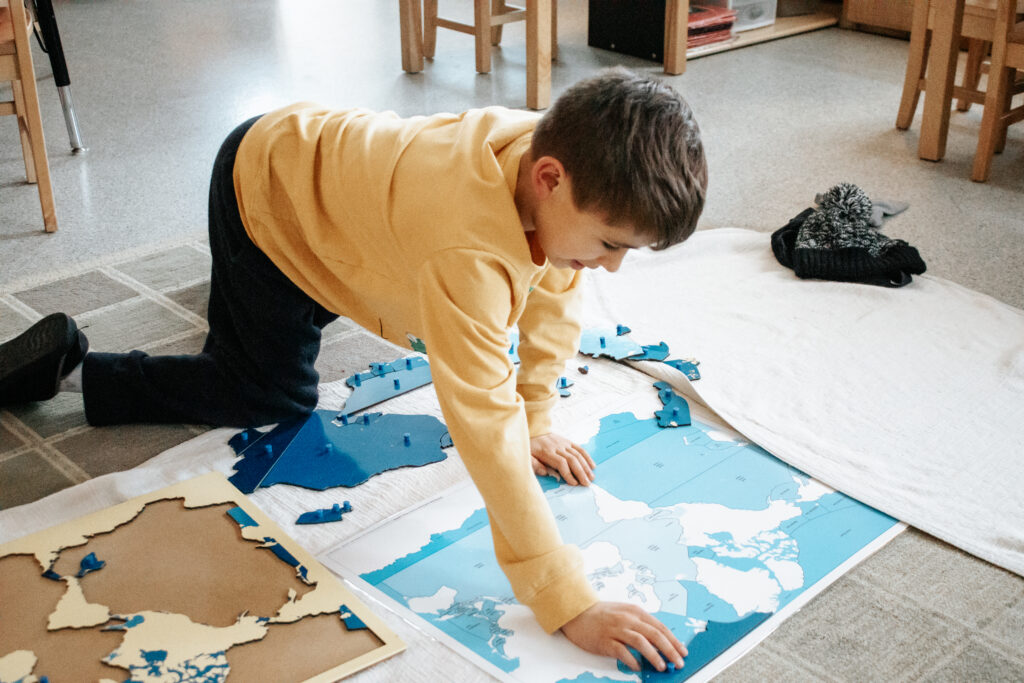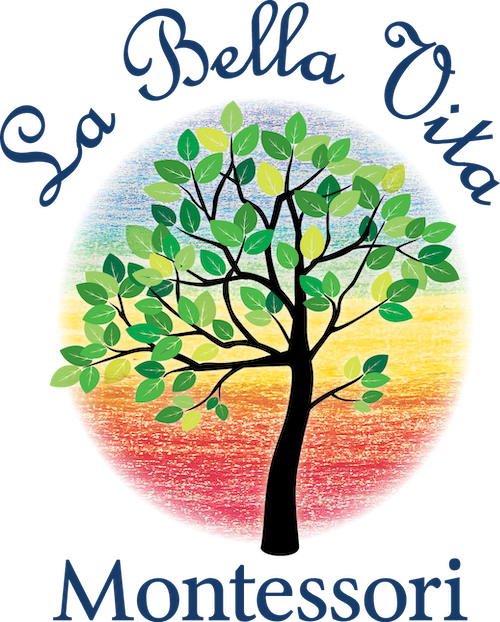
At La Bella Vita, the elementary curriculum forms an integrated approach to answering the “why” and “how” questions that are so prominent in the minds of elementary aged students. Information is shared in a story-telling fashion and focuses on peaking student interest and curiosity. This curiosity leads them to delve into further exploration in the areas of math, language, history, chemistry, biology, astronomy, botany, physics, culture, art, music and much more. Presented in a respectful and open-minded way, this method helps students gain a deeper understanding of the world and how they fit in it.
We aim to foster a joyous learning environment, one where students truly love learning, learn to pursue their interests, and come to appreciate themselves. A core aspect of this environment is that students learn to tackle the challenges that come with real learning, to persist in a way that enables them to learn about what they love, and that their appreciation for themselves is not based on empty praise but is really earned. A core outcome of our elementary classrooms, in other words, is that students develop a work ethic. Our elementary programs fully embrace this high-structure, high-autonomy approach. At the elementary level, students have tremendous responsibility for their work, and learn to hold themselves accountable with specific tools and techniques. The result is a classroom in which each student is busy achieving a high level of ambition and self-mastery, even as they pursue—indeed, through their pursuit of their schoolwork.
Students in the elementary classroom work on exploring concepts and ideas on a schedule determined, in part, by personal interest. The learner may focus for a period of time on a particular subject area, infusing an incredible amount of attention and energy into the process. At these times, the teacher monitors the student’s progress, guiding and recording, while maintaining the learner’s engagement and focus. Through teacher guidance, group interaction, stimulating materials and all that the classroom environment has to offer, the learner’s interest will inevitably lead them to experience a variety of subject matter and allow for a strong, varied academic base.

Our Approach to Work Ethic
Our Montessori elementary classrooms give students significant autonomy and freedom over their work. Gone is the day dominated by students moving in masses, from class to class, scheduled in short blocks of time. Gone is the role of the teacher in micromanaging student’s work and responsibilities. The Montessori classroom is instead organized primarily around a three-hour work cycle, a block of protected time in the morning. During the work cycle, the teachers circulate and give lessons and other assistance to individuals or small groups of students. The majority of students, who are not in lessons, are responsible for directing their own work. They organize themselves, follow up on lessons received previously, extending their understanding and mastering their skills. This is no small feat. The child that can do this, who can successfully and productively manage her time, is manifesting in her behavior the deep elements of ambition, persistence, organization, and self-mastery discussed earlier.

More specific elements of the Montessori elementary approach to the culture of work include:·
- An overall culture of responsibility. In addition to being encouraged to develop independence and choose their own work, each child is also responsible for being prepared with all materials for lessons, for completing all follow-up tasks and independent work, and for keeping accurate records of work completed. Active stewardship is a part of the class culture, inclusive of care of the class environment and other jobs that need to be done on a daily basis to keep the class running smoothly. Natural consequences occur and logical consequences for not acting responsibly also ensue and are part of the boundaries of independence.
- Features complex work demanding of organizational skills, project planning, and self-reflection. Executive functioning and self-regulation skills are strengthened and practiced through the approach to work. These skills and habits of mind are reinforced as children manage their own schedules and complete follow-up assignments after a lesson or conceive of, plan for, and successfully execute progressively larger projects over weeks, months, or years.
- A long work cycle featuring few or no interruptions. With fewer daily interruptions, such as bells for recess or regimented lesson intervals, students are able to follow through with persisting with challenging tasks at hand. They are not “saved by the bell” in the middle of a challenging math problem, for example, and have the opportunity to experience the discomfort in a challenge and yet experience the joy following sustained effort and follow through. Children with repeated opportunities to persist in difficult tasks develop greater stamina to work. When a child exerts effort to produce quality work, a sense of healthy pride, self-worth, and satisfaction is kindled.

